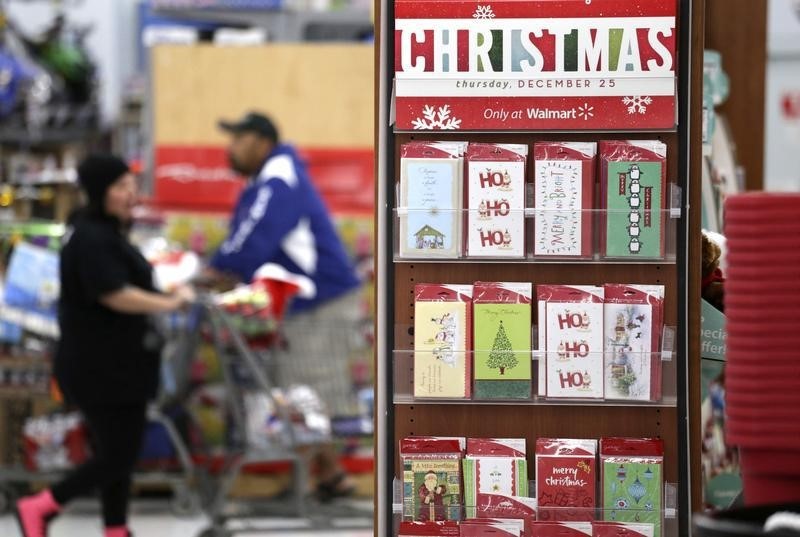By Lucia Mutikani
WASHINGTON (Reuters) - The U.S. economy likely grew at a brisk clip in the fourth quarter as lower gasoline prices buoyed consumer spending, in a show of resilience despite a darkening global outlook.
Gross domestic product probably expanded at a 3 percent annual pace, according to a Reuters survey of economists. While that would be a step down from the third quarter's breakneck 5 percent rate, it would be the fifth quarter out of the last six that the economy has grown at or above a 3 percent pace.
"The consumer did the heavy lifting and I don't think there is any reason to expect that to change in the first half of this year because of the enormous tailwind from lower gasoline prices," said Ryan Sweet, a senior economist at Moody's Analytics in West Chester, Pennsylvania.
The Commerce Department will publish its first snapshot of fourth-quarter GDP at 8:30 a.m EST (1330 GMT) on Friday, two days after the Federal Reserve said the economy was expanding at a "solid pace," an upgraded assessment that keeps it on track to start raising interest rates this year.
The U.S. central bank has kept its short-term interest rate near zero since December 2008 and most economists expect a mid-year lift-off.
Consumer spending, which accounts for more than two-thirds of U.S. economic activity, is expected to have advanced at a pace of at least 4 percent in the fourth quarter - which would be the fastest in four years and an acceleration from the third quarter's 3.2 percent pace.
Gasoline prices have plunged 43 percent since June, according to U.S. government data, leaving Americans with more money for discretionary spending. Lower gasoline prices are expected to add at least half a percentage point to GDP growth.
A strengthening labour market, despite sluggish wage growth, is also seen boosting consumer spending in the fourth quarter.
"The number of people getting a paycheck has gone up even though wages have not accelerated that much," said Guy Berger, a U.S. economist at RBS in Stamford, Connecticut. "It bolsters the Fed's confidence in how strong the bedrock of this recovery is going to be."
The economy so far appears to be largely weathering faltering growth in Asia and Europe, although recent capital expenditure data has shown significant weakness.
Business spending on equipment is expected to have braked sharply in the fourth quarter, which could reflect delays of investment projects by companies in the oil industry. But the slowdown also comes after two straight quarters of strong growth.
"How much of that is due to the decline in oil prices or Europe is unclear," said Joel Naroff, chief economist at Naroff Economic Advisors in Holland, Pennsylvania.
The growth composition in the fourth quarter is likely to have been mixed. Government spending was likely a drag as a defence-driven burst fades. Residential construction is expected to have contributed to GDP growth.

Both inventory investment and trade also are expected to have added to growth, but are a wild card as data for December is not available and the government makes estimates for the GDP data.